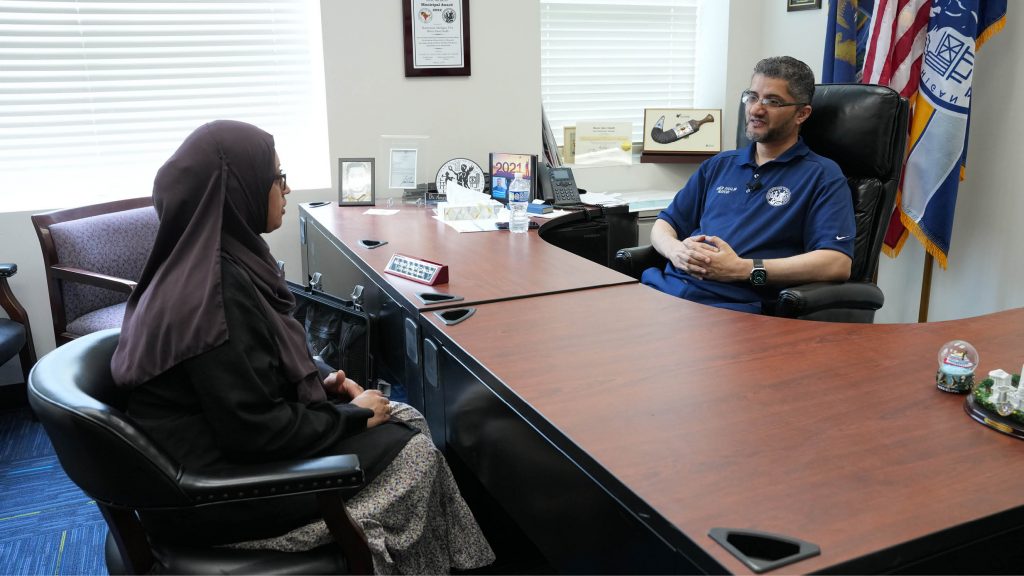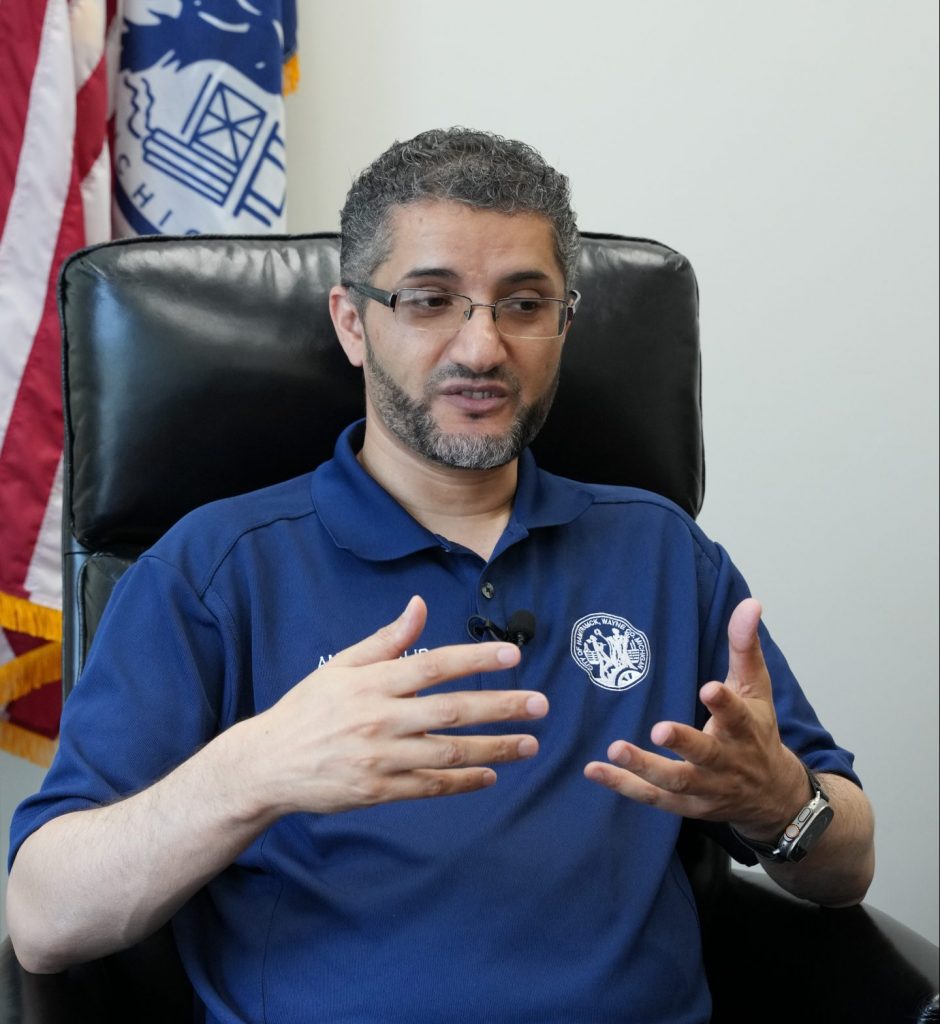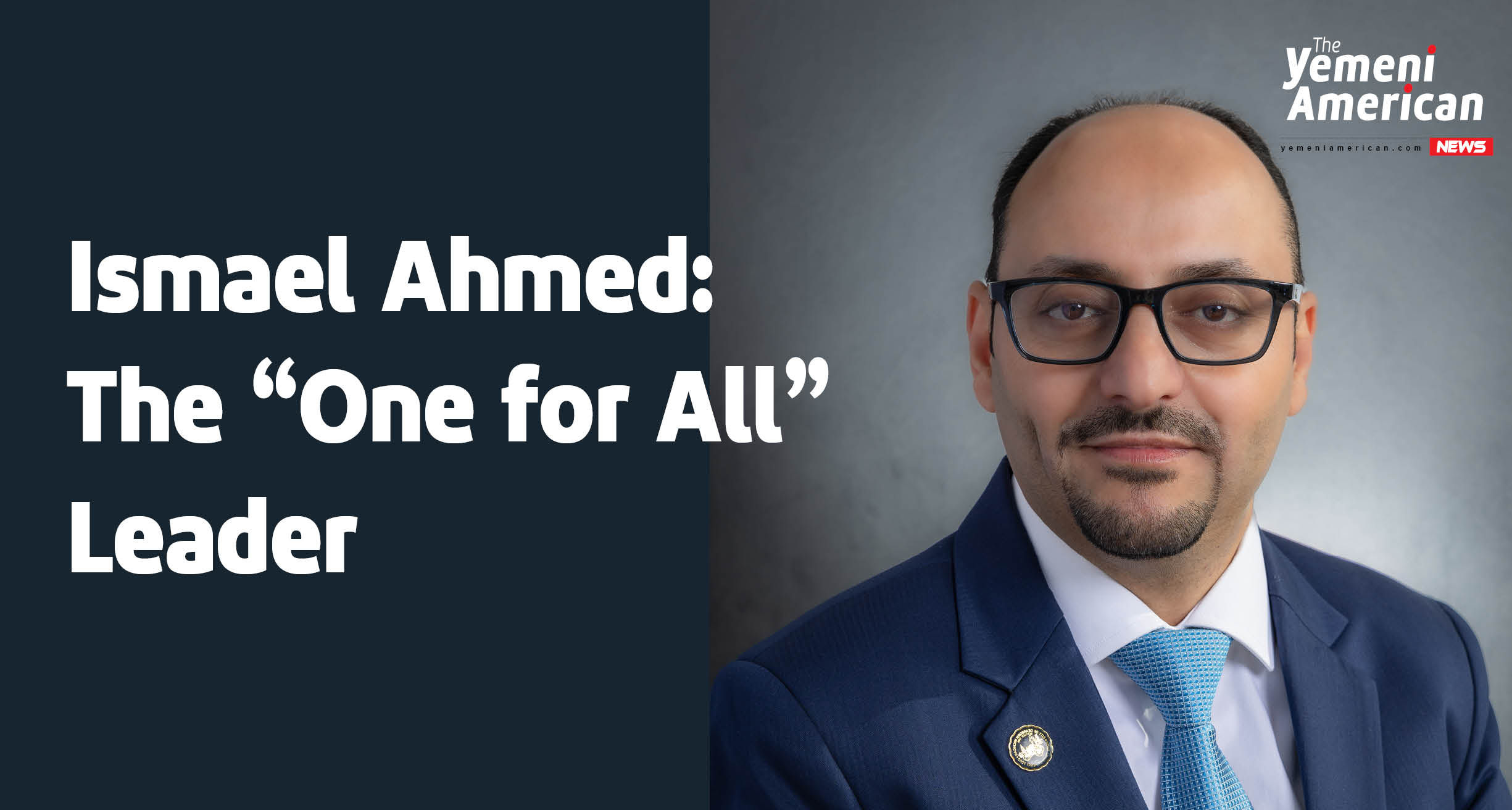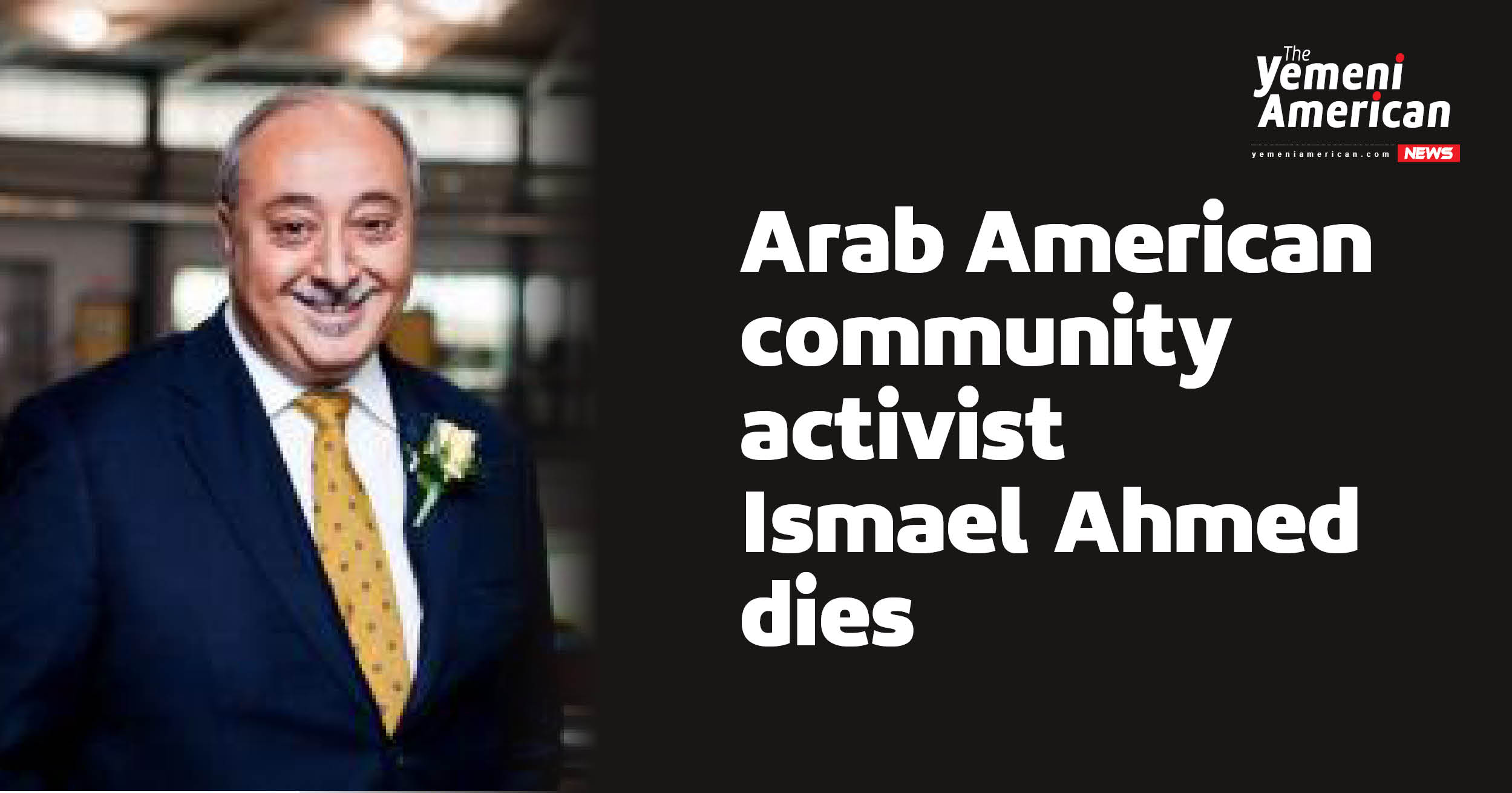Nargis Hakim Rahman
YAN
Amer Ghalib was elected as the first Yemeni American Muslim mayor in the city of Hamtramck in November 2021.
“I knew that, yes, it’s a historic moment, I was happy to be the first… I felt the responsibility, that is a big responsibility. And I have to work hard to succeed, because failure is not accepted in this position,” he says.
Ghalib says he was interested in politics from a young age, being inspired by a family member who was a politician in Yemen.

He was born in the city of Ibb, Yemen. He came to the U.S. when he was 17 years old after completing 11th grade to work and provide for his family.
“The purpose of coming to the United States is to work, it wasn’t for a school or anything. I started working in a factory for auto parts,” he says. “I used to work 10 hours a day, six days a week.”
Ghalib says he found his way to Hamtramck High School and completed 12th grade while working full-time.
“It was a very difficult chapter of my life. Because when you’re alone with no family support, no social support, and you have to take care of yourself and your family back home was kind of difficult,” he says.
Although Ghalib wanted to be a politician, he pursued a career in healthcare before becoming the mayor of Hamtramck. “I got accepted to Ross University School of Medicine, which is based in the Caribbean. I did my first two years there. And then I did my rotation, clinical rotation, third and fourth year in Sinai Grace Hospital.”
He worked as a health care professional at Hamtramck Medical Group, PC.
“Then, some people advised me that there is no hope that you will be anything depending on your background, and especially after 9/11 at that time. So that’s why I chose my second favorite field, which is medicine,” he says.
Coupled with being a new English speaker, he put the dream of becoming a politician on hold. But Ghalib had a chance to revisit his first passion in 2021, when he won by 68 percent of the vote, defeating former Mayor Karen Majewski, the first Polish woman mayor in the city.
“When I decided to go back and embrace politics and run for a public position, people were very receptive to that because they knew that I was interested in politics, although it was my first time to run for public office,” he says.
He was determined to create better representation in the city for Yemeni Americans and other minorities.
“Our community as the Yemeni American community was misrepresented,” he says, although around 40 percent of Yemeni Americans make up the city’s population.
Since coming to office Ghalib says he’s been working on several initiatives.
The first one was the budget. Ghalib says the city was able to get out of a deficit.
“This is the third consecutive year we have a surplus,” he says.
In May 2022, Hamtramck received a $195,800 grant for “Public safety enhancement through installation of surveillance cameras and security doors” from Governor Whitmer’s administration.
MSU Extension Center for Local Government Finance & Policy wrote a report on the city’s short and long termfinancial health for the fiscal year 2021-2022.
The report states the city’s pensions and grants have helped the city stay financially afloat, stating, “The city is on the Michigan Department of Treasury’s list to receive a “Protecting Michigan Pensions” grant. This grant would increase the city’s 43 percent pension funding ratio for 2021 to least a 60 percent funded ratio. This pension grant would reduce annual expenses for the city budget as well.”
The report noted that income nearly doubled from 2021 to 2022.
In 2023, the budget was at a surplus.
Last year the Federal Emergency Managmeent Agency awarded Hamtramck and the Detroit Jefferson Chalmbersneighborhood $20 million to install new water mains.
This year Hamtramck also received a $10 million grant to replace watermain and 252 lead pipe services, for 10,825 linear feet of watermain, according to the WaterWorldMagazine.
Ghalib says the city continues to work to make improvements.
“This year alone, we will replace 1,700 house lead pipes compared to last year, when we replaced only 400 house. So that’s five times as much each house costs $8,500,” he says.
Ghalib is also keen on hiring more diverse staff to better represent the community.

“One thing is diversifying the City Hall boards and commissions so now you see some people have different backgrounds holding some key positions in the city hall or and boards and commissions,” he says. “So now the city hall reflects the demographics of the city. We have monies, Bengalis, Pakistanis, Bosnians, Polish, African Americans in the city hall.”
Ghalib says more people have been hired for several departments, including the police department. On May 13, Police Officer Eida Hussain, the first Bengali female officer, and Police Officer Jamaria Clark were sworn in at Zussman Park, in front of the city hall.
The new police chief Jamiel Altaheri was sworn in that day too. He brings 20 years of experience with him from working at the New York Police Department.
At the ceremony Mayor Ghalib greeted the 50 or so onlookers.
“This is another historic event that will remain in the memory of the community forever. swearing in our new police chief captain Jamiel Altaheri and two other officers of various backgrounds confirmed that our mission of diversifying a city hall and the police department has been accomplished,” he said.
Ghalib said that the police department has room for improvement, and hiring diverse officers should help bridge the gaps between residents and the department, through understanding the cultural and religious backgrounds of the community.
Ghalib says he plans to run for another term.
“I actually have a lot of projects, big projects that I want to accomplish, and I want to finish for the city… to finish my projects, I need at least two terms, which is very possible,” he says.








